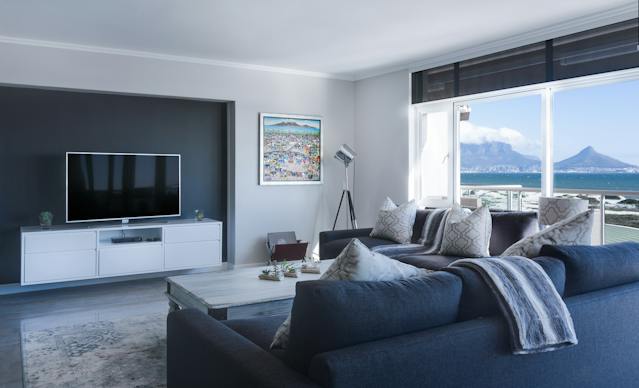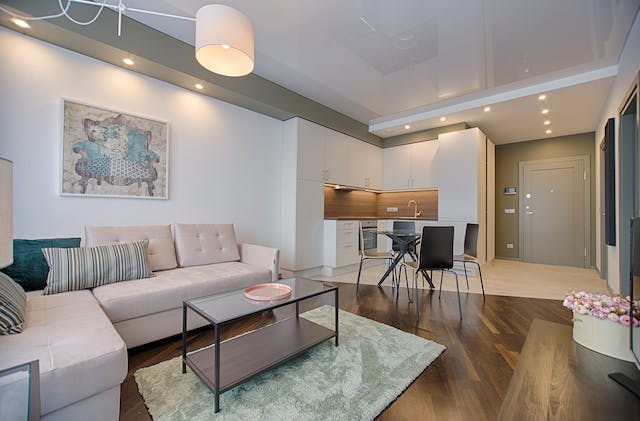Are you dreaming of a glamorous career that allows you to unleash your creativity and transform spaces into beautiful, functional environments? If so, a career in interior design may be the perfect fit for you. As an interior designer, you have the opportunity to work with clients to create breathtaking interiors that reflect their personalities and lifestyles. However, before diving into this competitive industry, it’s important to weigh the challenges and rewards that come with pursuing a career in interior design.
From long hours and demanding clients to the satisfaction of seeing your designs come to life, interior design offers a mix of excitement and stress. In this blog post, you will explore the skills and qualities needed to succeed in this field, the potential salary and job prospects, as well as the steps to take to become a successful interior designer. Whether you’re considering a career change or just starting out in the design world, this post will provide you with valuable insights to help you determine if interior design is the right career path for you.
Key Takeaways:
Lucrative Career
Interior design can be a profitable career path, especially for those with a strong eye for design and a passion for creating beautiful spaces.
Creative Outlet
As an interior designer, you have the opportunity to express your creativity and bring your artistic vision to life through design projects.
Versatile Field
Interior design offers a wide range of specialization opportunities, including residential, commercial, sustainable, and hospitality design, allowing professionals to pursue various paths within the industry.
Education and Skills
Pursuing a career in interior design requires a combination of formal education, practical experience, and a diverse set of skills, including communication, problem-solving, and project management.
Client Collaboration
Successful interior designers must possess strong interpersonal skills to effectively collaborate with clients and understand their needs, preferences, and budget constraints.
The Scope of Interior Design

Any career in interior design covers a vast array of opportunities for you to explore. As an interior designer, you can work in residential, commercial, or industrial spaces, or even specialize in areas such as sustainable design, healthcare design, or hospitality design. With the increasing demand for aesthetically pleasing and functional spaces, the scope of interior design has expanded significantly, offering you a diverse range of career paths to choose from. For more insight into the importance of an interior designer in the design of your dream home, you can read this article about home furnishing as a career choice.
Historical Background of Interior Design
The development of interior design as a profession can be traced back to ancient civilizations such as Egypt, Greece, and Rome, where interior decoration was seen as an expression of social status and cultural values. In the 18th and 19th centuries, the industrial revolution and the rise of the middle class led to a shift in interior design, emphasizing functionality and comfort in living spaces. The profession further evolved in the 20th century with the emergence of modernist movements and interior design as a distinct discipline.
Types of Interior Design Styles
When it comes to interior design styles, you have a range of options to choose from, with each style reflecting a different aesthetic and functional approach. Some of the popular types include:
- Modern: Characterized by clean lines, sleek surfaces, and minimalistic design.
- Traditional: Features elaborate furnishings, rich colors, and a sense of formality.
- Contemporary: Incorporates current design trends and emphasizes simplicity and sophistication.
- Industrial: Showcases raw and unfinished elements, often found in loft-style living spaces.
- Transitional: Blends the warmth of traditional design with the clean lines of contemporary style.
Any understanding of these styles will help you define your personal preferences and vision for your living or working space. You can then work with an interior designer to bring your dream design to life.
Dream Job: The Image and Reality of Interior Design
Despite the glamorous image portrayed in the media, the reality of interior design is much more complex. Before you embark on this career path, it’s important to carefully consider both the image and the reality of working in this field. To gain more insight, you can refer to What Makes Interior Design a Good Career Option?
The Glamorous Image of Interior Design
Many people are drawn to the idea of becoming an interior designer because of the glamorous image associated with the profession. From glossy magazine spreads to reality television shows, the portrayal of interior design often highlights the creative process and the end result, which can be visually stunning. The prospect of transforming spaces and creating beautiful environments can be incredibly appealing.
However, it’s important to remember that the glamorous image portrayed in the media doesn’t fully capture the realities of the job. In reality, interior design involves a great deal of hard work, long hours, and attention to detail. While the creative aspect is certainly a major component of the job, there are also practical and logistical considerations to take into account. It’s not all about picking out fabrics and colors – you’ll also need to navigate client relationships, budget constraints, and project deadlines.
The Everyday Reality of Interior Design
When considering a career in interior design, it’s crucial to understand the everyday reality of the job. While you may envision spending your days sourcing luxury furnishings and attending glamorous events, the truth is that much of your time will be spent on less glamorous tasks. You may find yourself managing budgets, coordinating with contractors, and troubleshooting logistical challenges on a regular basis.

It’s also important to acknowledge that interior design can be a high-pressure profession. Meeting client expectations, adhering to strict deadlines, and juggling multiple projects simultaneously can be incredibly demanding. Additionally, the financial reality of the industry means that there can be periods of uncertainty and instability, particularly when starting out in the field. However, for those with a passion for design and a willingness to put in the hard work, the rewards can be both professionally and personally fulfilling.
The Market Demand for Interior Designers Now, let’s take a look at the market demand for interior designers. As you consider pursuing a career in interior design, it’s important to understand the current state of the market, as well as the anticipated trends and employment opportunities. This will give you insight into the potential demand for interior designers and help you make informed decisions about your career path. Current State of the Interior Design Market In the current state of the interior design market, there is a growing demand for professionals who can create functional and aesthetically pleasing spaces. The emphasis on creating unique and personalized environments has led to an increased need for talented interior designers.
Additionally, there is a rising awareness of the impact of interior design on mental well-being, further driving the demand for skilled professionals in the field. However, it’s important to note that the market can also be competitive, as more individuals are pursuing careers in interior design. This means that to succeed, you will need to differentiate yourself from the competition through your skills, creativity, and unique vision. Anticipated Market Trends in Interior Design Looking ahead, there are several anticipated market trends in interior design that could shape the demand for professionals in the field. The growing interest in sustainable and eco-friendly design solutions is expected to drive the demand for designers who can specialize in these areas.
Additionally, the rise of smart technology integration within interior spaces presents new opportunities for designers to stay ahead of the curve. Furthermore, the increasing emphasis on wellness and biophilic design is likely to create a demand for designers who can create spaces that promote health and well-being. As you consider a career in interior design, staying informed about these trends will be essential for your success in the market. Employment Opportunities in Interior Design When it comes to employment opportunities, there are various avenues for interior designers to explore. You may find opportunities to work in residential design, commercial design, hospitality design, or even set design for film and television.
Additionally, there is a growing demand for freelance and independent interior designers who can cater to the needs of individual clients. Keep in mind that while there are abundant opportunities, the market can also be demanding, requiring you to be adaptable and resilient in pursuing your career goals. As you navigate the landscape of interior design, it’s essential to stay proactive and continuously seek out new opportunities to grow and develop your skills.
Necessary Skills for a Successful Career in Interior Design
To have a successful career in interior design, you need a combination of technical skills, creativity, and effective communication. These skills will allow you to not only create beautiful and functional spaces but also to effectively communicate and collaborate with clients, contractors, and other professionals in the industry.

Crucial Technical Skills in Interior Design
One of the most important technical skills for interior designers is a strong understanding of spatial layout and design principles. This includes knowledge of architectural drafting, building codes, and construction standards. You also need to be proficient in computer-aided design (CAD) software to create detailed plans and 3D models of your designs. Additionally, having a good understanding of materials, finishes, and furnishings is crucial for executing your designs effectively.
Importance of Creativity in Interior Design
Interior design is a highly creative field, and your ability to think outside the box and come up with innovative design solutions is paramount to your success. Your creativity will allow you to imagine and bring to life spaces that not only look visually stunning but also function well for the people who will use them. Whether it’s choosing color palettes, creating unique furniture layouts, or reimagining existing spaces, your creativity will set you apart in the industry.
The Role of Communication in Interior Design
Effective communication is critical in interior design, as you will need to work closely with clients, contractors, and other professionals throughout the design process. You will need to be able to listen to your clients’ needs and translate their vision into a reality. Strong communication skills will also allow you to clearly convey your design ideas, collaborate with other professionals involved in the project, and ensure that the final result meets everyone’s expectations. Your ability to effectively communicate and collaborate will ultimately determine the success of your projects.
Academic and Professional Pathways in Interior Design
Lastly, let’s delve into the academic and professional pathways that can lead you to a successful career in interior design. Whether you are just beginning your educational journey or looking to advance your skills and qualifications, there are various routes to consider. From educational requirements to certification and licensing, understanding the pathways available to you can help you make informed decisions about your career.
Educational Requirements for an Interior Design Career
When it comes to pursuing a career in interior design, having the right education is essential. Most interior design positions require a minimum of a bachelor’s degree in interior design or a related field. This formal education provides you with the foundational knowledge and technical skills needed to excel in the industry. Coursework typically covers topics such as space planning, color theory, architecture, furniture design, and building codes. Additionally, gaining practical experience through internships or apprenticeships can further enhance your skills and understanding of the profession.
Certification and Licensing in Interior Design
While not all states require interior designers to be licensed, obtaining professional certification can greatly enhance your credibility and marketability in the field. The National Council for Interior Design Qualification (NCIDQ) offers a certification exam that demonstrates your proficiency in interior design principles and practices. Achieving this certification showcases your commitment to maintaining high standards and ethical practices within the industry, which can set you apart from your peers. Additionally, some states do require interior designers to be licensed, which typically involves meeting specific education and experience requirements, as well as passing a state-approved exam. Obtaining certification and licensure can be a competitive advantage in the job market and can open up opportunities for higher earning potential.
Positive Aspects of a Career in Interior Design
After considering a career in interior design, you may be wondering about the positive aspects of pursuing this profession. First and foremost, interior design is a rewarding and fulfilling career that allows you to bring beauty and functionality into people’s lives. Additionally, there are opportunities for career progression and personal growth within the industry. Let’s explore some of the positive aspects of a career in interior design in more detail.
Rewarding Aspects of Interior Design
One of the most rewarding aspects of a career in interior design is the ability to transform a space and create a meaningful impact on the lives of others. As an interior designer, you have the opportunity to work with clients to bring their visions to life and create environments that improve their quality of life. Whether it’s a home, office, or public space, your work can have a profound effect on the people who inhabit these spaces. This sense of fulfillment and the ability to positively influence others through your designs is a major driving force behind the appeal of a career in interior design.
Career Progression in Interior Design
Another positive aspect of a career in interior design is the potential for career progression and growth. As you gain experience and build a solid portfolio, you can advance to more challenging and high-profile projects. You may also have the opportunity to specialize in a particular area of design, such as residential, commercial, or sustainable design. Additionally, with the right experience, skills, and reputation, you may have the chance to start your own interior design firm and become a business owner. This potential for growth and advancement in the field can be incredibly motivating and offers a clear path for you to achieve your professional goals.
Challenges in the Interior Design Industry
However, despite the allure of a career in interior design, the industry comes with its fair share of challenges. Understanding and navigating these challenges is crucial to building a successful career in this field.
Competitive Nature of the Interior Design Market
The interior design industry is highly competitive, with a large number of talented professionals vying for the same projects and opportunities. This means that in order to succeed, you must constantly strive to set yourself apart from the competition. Building a strong portfolio, establishing a unique design aesthetic, and networking effectively are all essential in order to thrive in this competitive landscape. It’s important to be proactive and always be on the lookout for new opportunities to showcase your skills and expand your client base.
Identifying the Balance between Creativity and Functionality
One of the key challenges in interior design is finding the balance between creativity and functionality. While it’s important to bring innovative and unique design ideas to the table, it’s equally crucial to ensure that the spaces you design are practical and functional for the people who will be using them. Striking this balance can often be a delicate process, requiring you to constantly reassess and refine your design concepts to meet both aesthetic and functional requirements. Being able to effectively communicate and negotiate with clients to achieve this balance is a crucial skill for success in this industry.
Conclusion: Is Interior Design a Good Career Path?
The field of interior design offers a range of opportunities for creative individuals like yourself. From residential and commercial spaces to retail and hospitality, there is no shortage of potential career paths within the industry. As an interior designer, you have the ability to transform and enhance the aesthetics and functionality of various spaces, making a lasting impact on people’s surroundings and experiences. With the right education, skills, and determination, a career in interior design can be both personally fulfilling and financially rewarding.
The demand for interior designers is expected to grow in the coming years, providing ample employment opportunities for those with a passion for design and a keen eye for detail. Whether you choose to work for a design firm or start your own business, the field of interior design offers the potential for professional growth and success. So, if you have a natural flair for creativity and a passion for creating beautiful and functional spaces, pursuing a career in interior design may be the right path for you. The possibilities are endless, and the rewards are well worth the journey.
People also asks – Is Interior Design a Good Career Path?
Is interior design a good career choice?
Yes, interior design can be a rewarding and fulfilling career for those with a passion for creativity, problem-solving, and creating beautiful spaces.
What skills are essential for a successful career in interior design?
Essential skills for a successful career in interior design include creativity, strong visual and spatial awareness, excellent communication, and project management abilities, as well as a good understanding of color, fabric, and furniture.
What are the job prospects like for interior designers?
Job prospects for interior designers are generally favorable, with opportunities in residential, commercial, hospitality, and healthcare sectors. With the growing importance of sustainable design practices, there is also an increasing demand for environmentally conscious designers.
What are the potential challenges of a career in interior design?
Some potential challenges in the field of interior design include meeting client expectations, managing project budgets, and keeping up-to-date with ever-changing design trends and technologies. Competition from other designers and firms can also be a challenge.
Is formal education necessary to become an interior designer?
While formal education is not always mandatory, obtaining a degree in interior design or a related field can provide the necessary knowledge and skills to be successful in the industry. Many employers also prefer candidates with a formal education background in interior design.

Author Bio
Brian Bertrand
Brian Bertrand is an experienced resume writer with over five years of expertise in catapulting clients to their dream jobs. Through collaborations with renowned freelance platforms and esteemed online resume service brands, he has carved a niche for himself by delivering personalized, top-notch resumes that encapsulate the very essence of each client’s accomplishments, skills, and character. Diligent in his approach, Brian’s innovative flair and unwavering commitment to his craft make him a trusted partner in the pursuit of professional success. With an insistent curiosity for diverse industries and career trajectories, Brian strives to ensure that each resume he creates stands out from the competition. Whether you’re an aspiring graduate, a career switcher, or a seasoned pro, Brian possesses the expertise to craft a resume that truly reflects your unparalleled value and potential.

